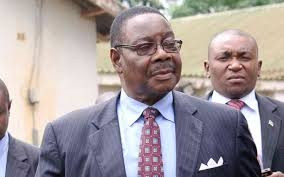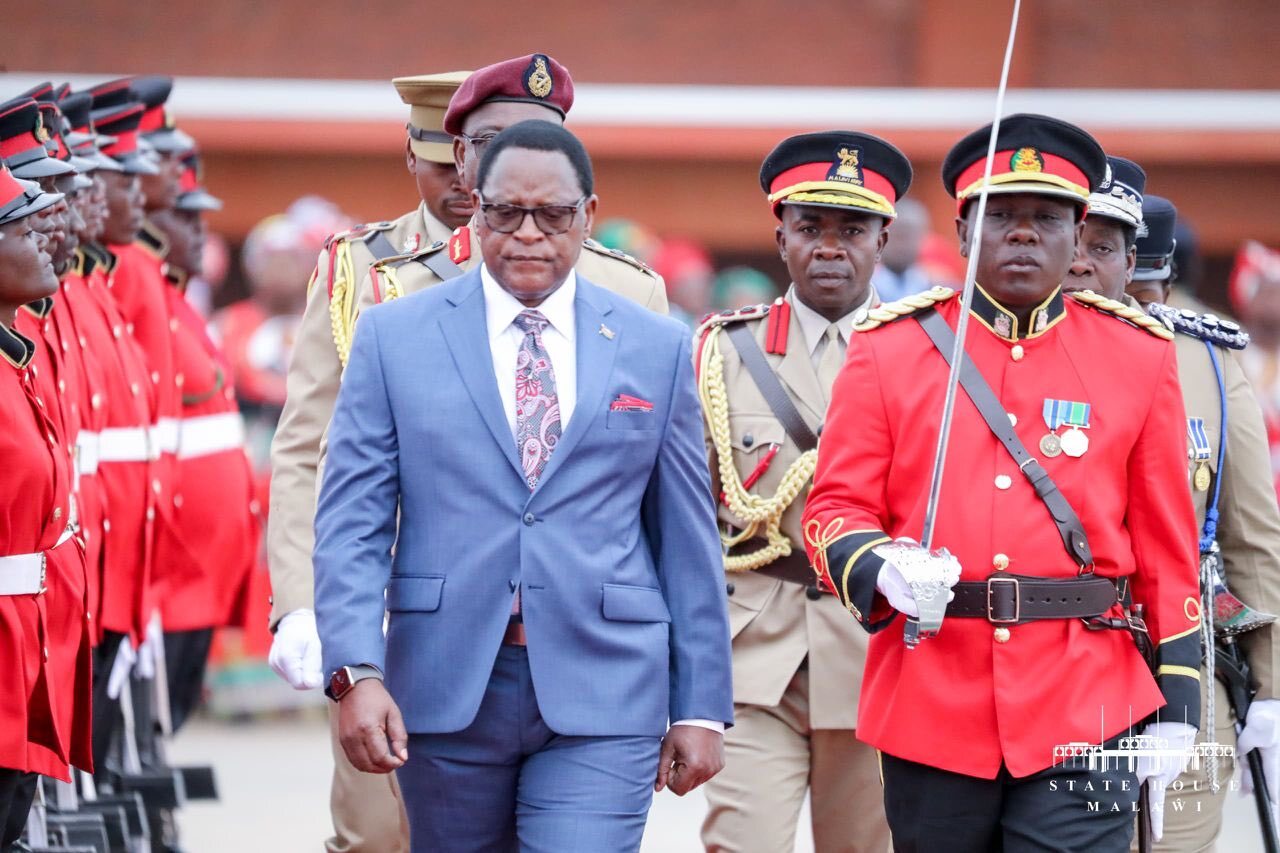Malawi's Political Quake: Chakwera Concedes, Sparks Continental Democracy Debate

President Lazarus Chakwera’s concession in Malawi’s 2025 general elections to former President Arthur Peter Mutharika signifies a profound verdict on leadership, public trust, and the weight of unfulfilled expectations. This electoral shift, closely watched across Africa, represents not merely a change in power but a referendum on broken promises, fractured alliances, and widespread economic hardship felt in every Malawian household. On September 16, 2025, Malawians queued to cast their ballots, leading to a decisive victory for Mutharika.
The Malawi Electoral Commission (MEC) confirmed Mutharika of the Democratic Progressive Party (DPP) secured an insurmountable lead, ultimately garnering 2,954,553 votes (71.2%). Chakwera, representing the Malawi Congress Party (MCP), received 990,872 votes (23.9%), while Dalitso Kabambe of the United Transformation Movement (UTM) trailed with 204,271 votes (4.9%). In a nationally televised address from Kamuzu Palace, Chakwera formally conceded defeat, acknowledging the citizens’ will and pledging a smooth, peaceful transfer of power to Mutharika, whom he personally congratulated on his “historic victory.” This marks Malawi’s second peaceful democratic transfer of power in five years.
Several critical factors contributed to Chakwera’s defeat. Foremost among these was the deterioration of his alliance with Vice President Saulos Chilima, once a charismatic pillar of the Alliance for Change. Chilima’s tragic death in a plane crash weeks before the vote, though not officially linked to foul play, fueled public suspicion and grief, eroding confidence in the incumbent’s moral authority. After his demise, Chilima’s United Transformation Movement (UTM) lost its spark, and his successor failed to connect with grassroots concerns, leading to a significant loss of northern swing votes and urban youth support.
Persistent economic hardships plagued Chakwera’s administration. For three consecutive years, Malawians endured inflation above 20%, chronic fuel shortages, and a deepening cost-of-living crisis. While Cyclone Freddy in 2023 exacerbated the situation, the government's sluggish response to hunger, forex scarcity, and agricultural decline had already alienated the electorate. The economy became the most potent campaign message, needing no messenger as its impact was felt acutely in every home.
Compounding these issues were mounting accusations of corruption, nepotism, and misuse of public resources within Chakwera’s administration. Even loyalists within the MCP criticized the leadership for taking citizens for granted and failing to uphold transparency. The perception of a government more concerned with consolidating power than serving the people proved politically fatal. Furthermore, electoral missteps and apparent overconfidence undermined public trust. The MCP’s attempt to block the announcement of election results through court injunctions was widely seen as an act of desperation. The High Court’s dismissal of their injunction, allowing results to be released, eroded the party’s credibility and reinforced the narrative of leadership out of touch with democratic norms.
Chakwera, who served as Malawi’s sixth president since 2020 and previously lost to Mutharika in 2014, then won a re-run in 2020 after the 2019 election results were annulled, thanked voters for maintaining peace. He instructed his administration to prepare state residences for the incoming president and commended MEC chair Justice Annabel Mtalimanja for overseeing a transparent election. While accepting the outcome, Chakwera highlighted the need for accountability regarding irregularities flagged by political parties and the MEC, urging the commission to provide a “full and transparent account” of any electoral violations.
The outcome offers crucial lessons for leaders across Southern and Eastern Africa, including Presidents William Ruto (Kenya), Duma Gideon Boko (Botswana), and Hakainde Hichilema (Zambia). These lessons underscore the fragility of alliances built on convenience, the imperative to prioritize economic justice over political optics, and the necessity of respecting democratic institutions. Attempts to manipulate electoral processes or silence dissent inevitably erode legitimacy. Leaders are also cautioned against personality cults and power consolidation, emphasizing the importance of distributed leadership and institutional resilience. Finally, the Malawian election serves as a reminder for leaders to stay close to the people, remaining accessible, responsive, and humble, especially in times of crisis. President Chakwera’s fall, though not inevitable, is instructive, reinforcing that leadership demands sustaining trust, delivering justice, and walking humbly with the people, for power is lent, not owned, and voters are increasingly demanding delivery over slogans.
Recommended Articles
Malawi's President Mutharika Sworn In, Declares War on Corruption

Peter Mutharika has returned to power as Malawi's President, pledging to combat corruption and revitalize the struggling...
Malawi Election Erupts: Chakwera Concedes Amidst High-Stakes Legal Battle

Malawi's high court dismissed President Lazarus Chakwera's bid to block election results, paving the way for the Malawi ...
Malawi Erupts: Mutharika Sweeps Presidential Race as Official Results Confirm Landslide Victory

The Malawi Electoral Commission has released official results for 24 electoral councils, showing Peter Mutharika in a si...
Malawi's Election Integrity Under Fire: Police Arrests and Suicide Attempt Rock 2025 Vote Preparations

Malawi's general elections are marred by serious incidents, including the arrest of a Returning Officer who survived a s...
Malawi's Political Earthquake: Mutharika Ahead as Chakwera Concedes!

Malawi's presidential election is tightly contested, with early counts showing Peter Mutharika ahead of Lazarus Chakwera...
You may also like...
Messi Mania Unleashed: Two Goals, One Assist as Inter Miami Obliterates Atlanta!
)
Lionel Messi delivered a sensational performance, scoring two goals and assisting one, as Inter Miami defeated Atlanta U...
Super Eagles Flight Terror: Mid-Air Scare Forces Emergency Landing!

Nigeria's Super Eagles faced a mid-air scare when their chartered ValueJet aircraft made an emergency landing in Luanda,...
Mutant Mania Unleashed: 'X-Men '97' Season 2 Gets 'Omega-Level' Updates and Teases Rogue-Magneto Romance!

Marvel TV boss Brad Winderbaum confirms the continuation of the Rogue and Magneto romance in <em>X-Men '97</em> Season 2...
Hollywood Loses a Legend: Diane Keaton Dies at 79, Industry Mourns Her Iconic Legacy

Academy Award-winning actress Diane Keaton has died at 79, sparking a wave of tributes from Hollywood stars and fans ali...
Botswana's Judiciary Under Siege: Non-State Actors Threaten Legal System

The Southern and Eastern Africa Chief Justices' Forum in Gaborone addressed critical issues of judicial independence and...
Shocking Death: Former Lostprophets Singer Ian Watkins Brutally Killed in Prison Attack

Ian Watkins, the disgraced former lead singer of Lostprophets and a convicted pedophile, has died at 48 after being fata...
Budget Bliss: Lidl's New Gadget Slashes Winter Bills by £275!

As colder weather sets in, Lidl is offering an affordable solution to combat household condensation and damp with its Tr...
Unveiled: Jennifer Aniston's Secret 29p Superfood for Staying in Shape!

Jennifer Aniston's diet secret, quinoa, is revealed to be a powerful superfood packed with health benefits. This gluten-...